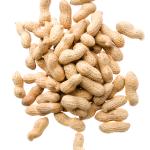Food intolerance is a problem in the digestive system.
peanut allergy
Researchers have been working for years to find a means of treating peanut allergy with various degrees of success, as we wrote about here.
Peanut allergies range from inconvenient to potentially fatal. The cause is unknown, but it is likely to involve a combination of immunogenetic and environmental factors.
Food allergies can give parents nightmares, especially when their allergic kids are away
The war on the P-B and J has been waged in our schools for some time now.
The American Academy of Pediatrics previously advised parents to keep infants away from peanuts until they were at leas
Allergic reactions to peanuts or tree nuts such as walnuts or almonds (P/TN) can be life-th
One of the most dangerous food allergies in children is peanut allergy.





